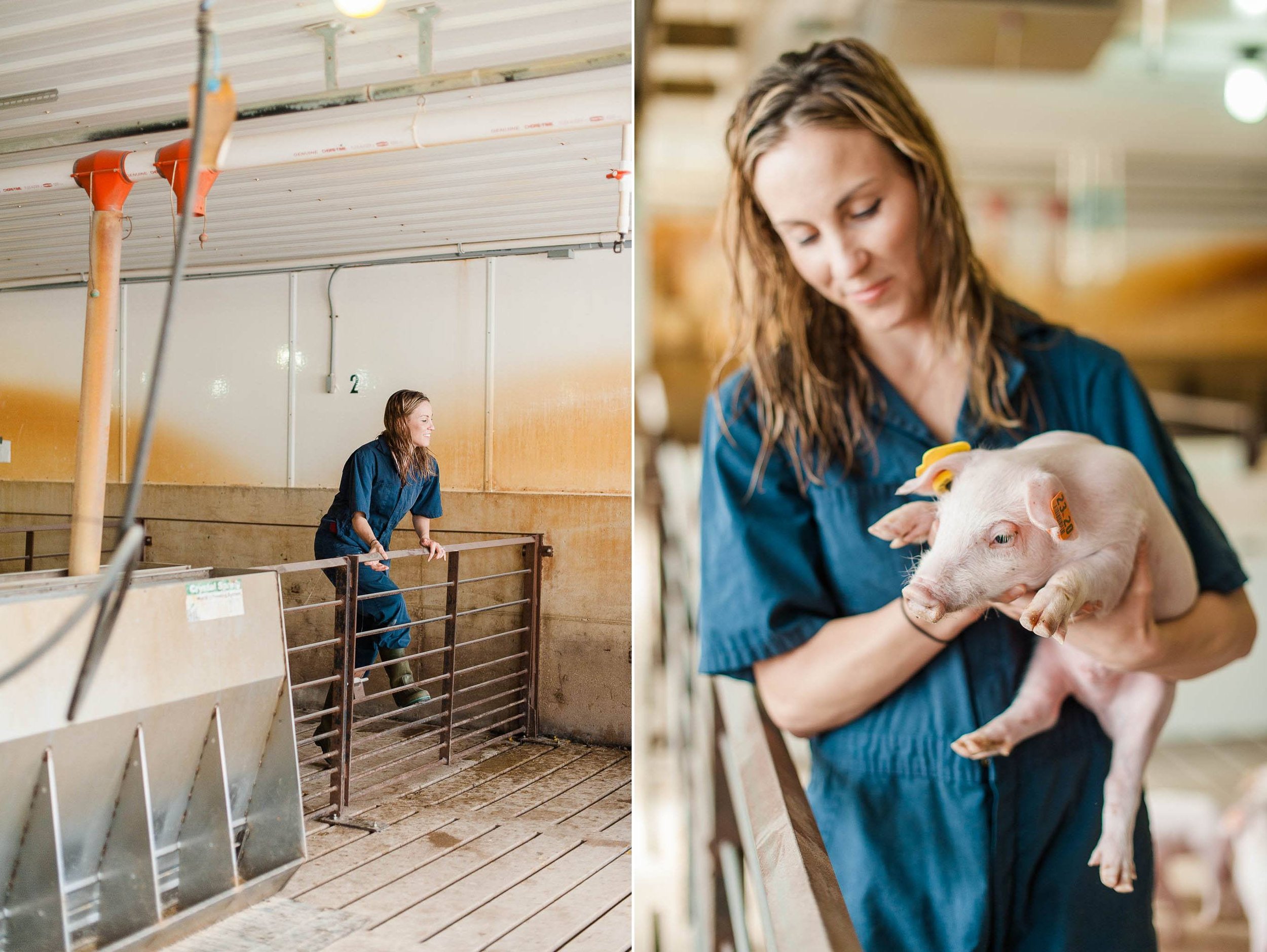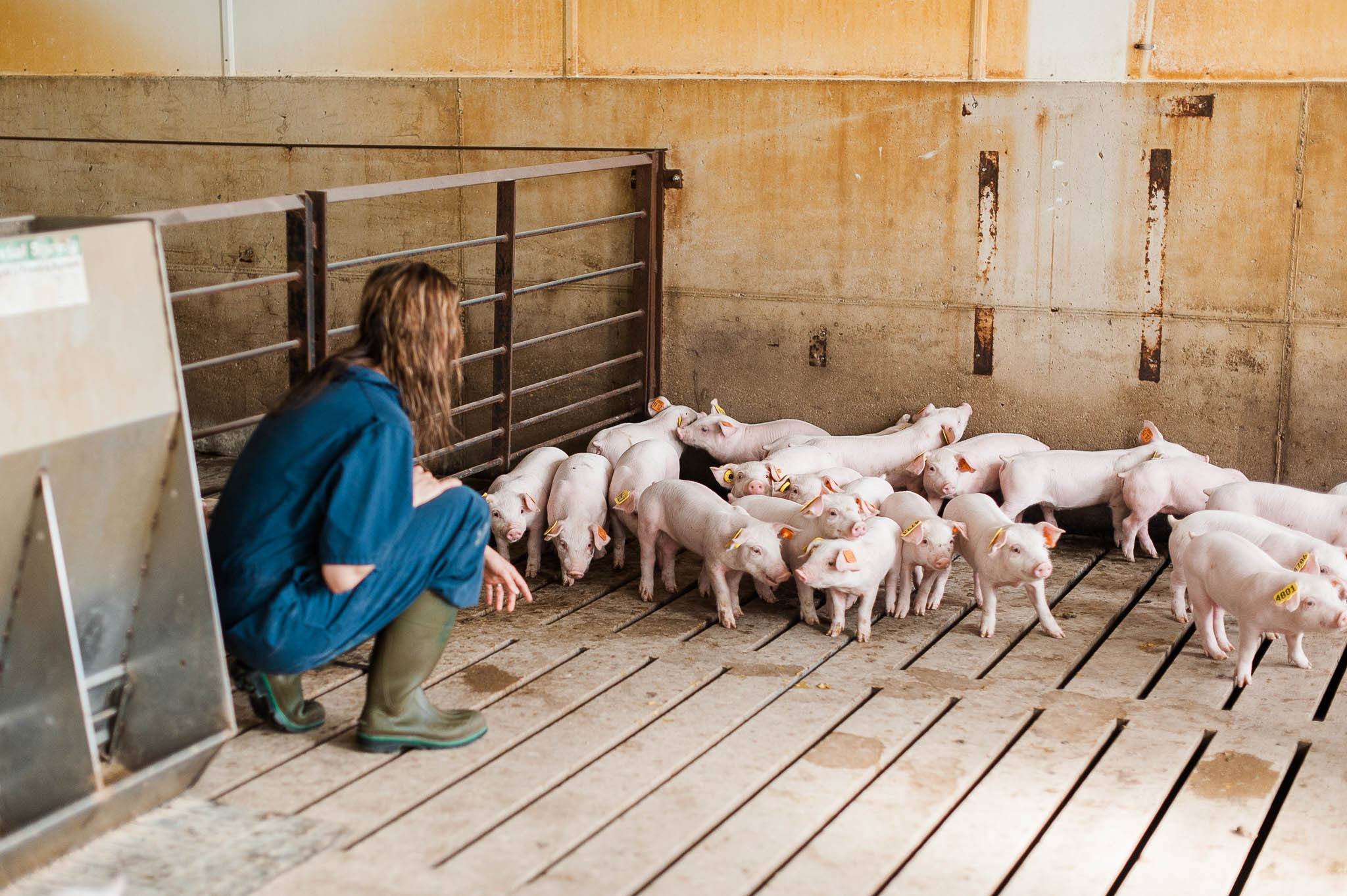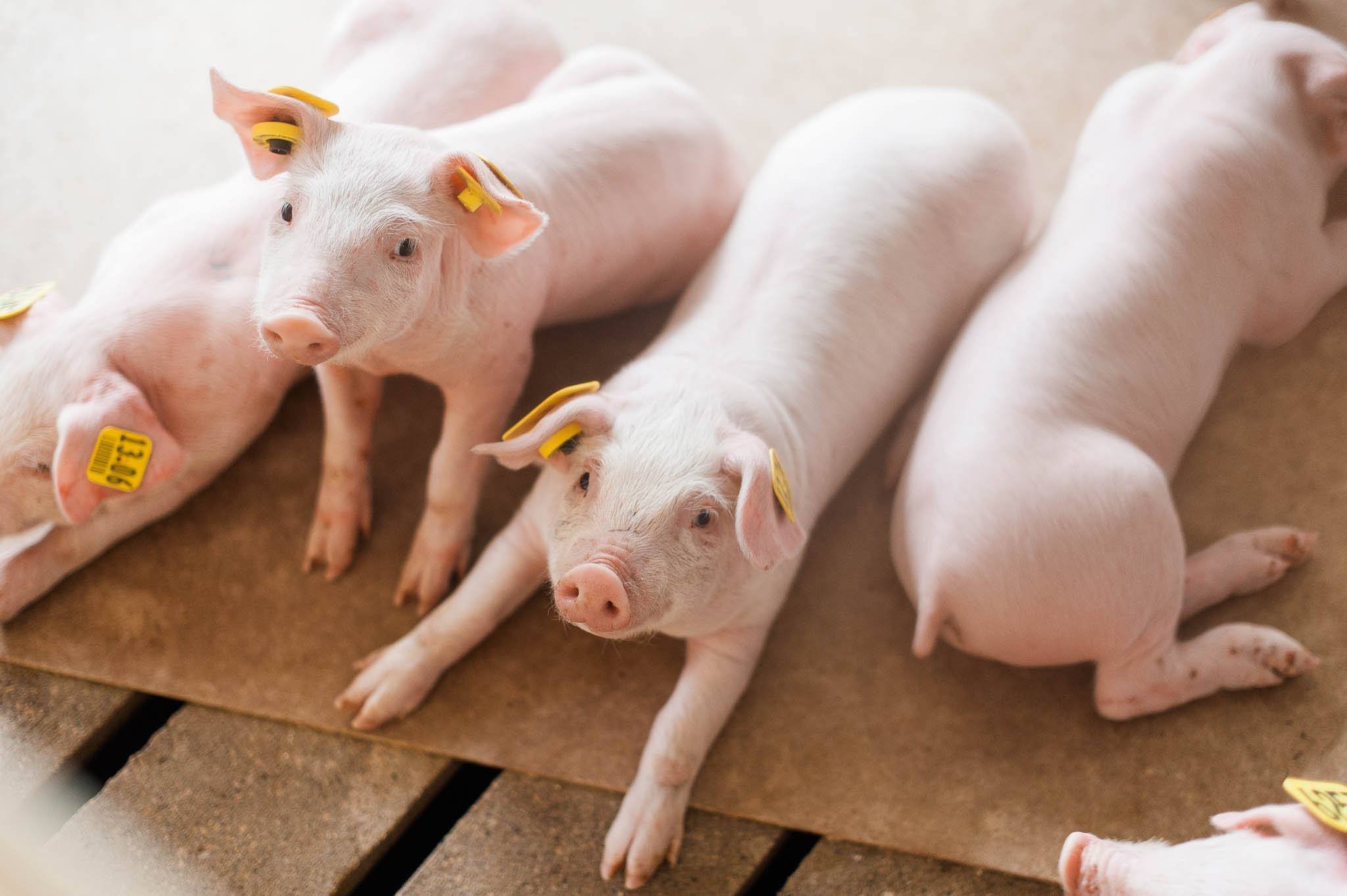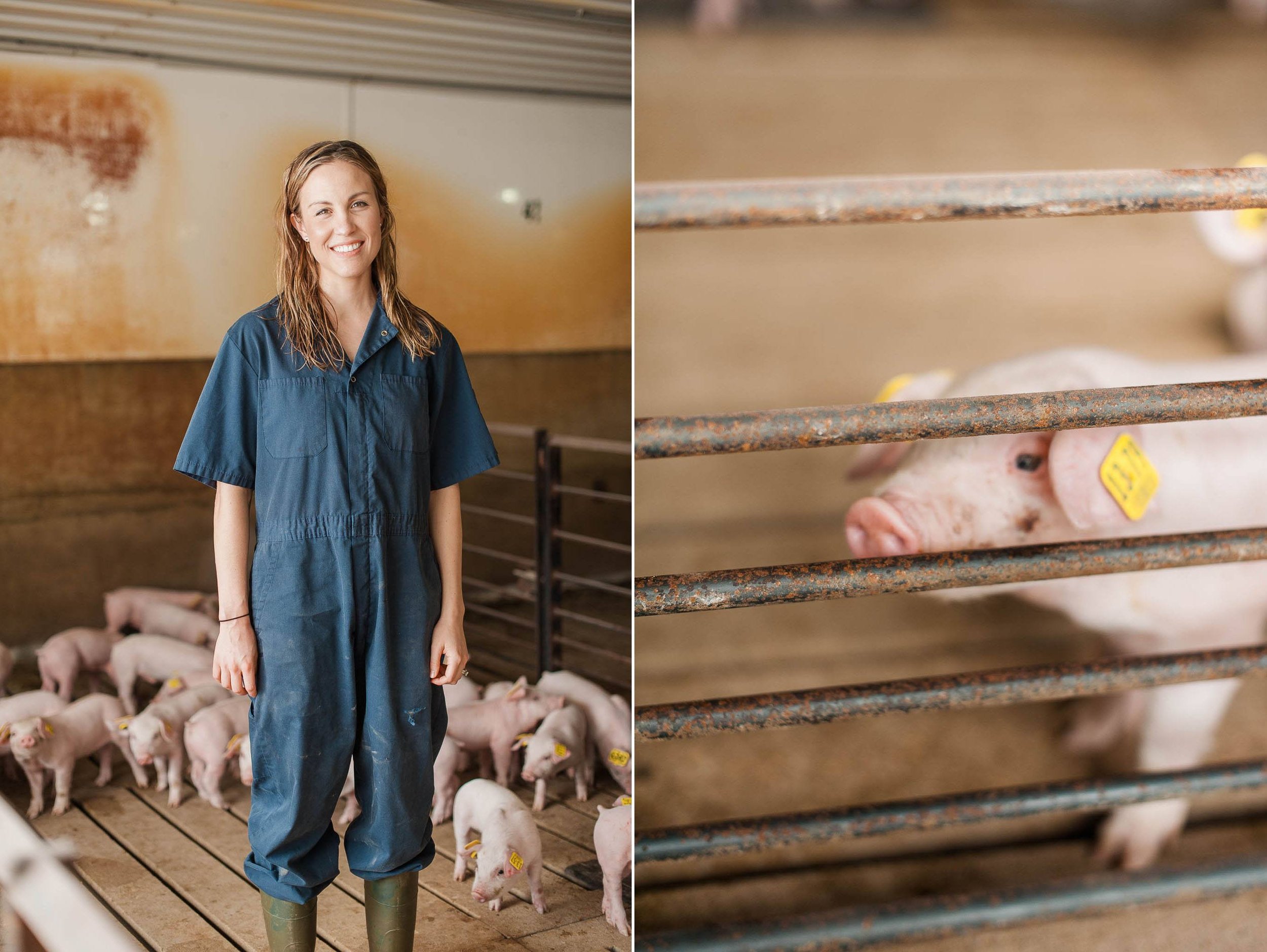Career Profile: Meet Amanda, Livestock Specialist
Amanda Eben is a livestock specialist who works with farmers every day to ensure the health of their animals. Amanda and her husband are active in each of their family farms, helping with their corn, soybeans and pig operations. We sat down with Amanda to learn more about her career and how she connects food and farming every day.
—
HFT: Tell us a little bit about your career path.
Amanda: My career is in the field of animal health. I work at an animal practice in Pipestone, Minnesota, which is a veterinary clinic but also a swine management company. I work within the swine team, where we help pig farmers get the right products they need to care for their animals. That includes everything from boots to vaccines to coveralls.
HFT: What does a typical day look like for you?
Amanda: A typical day for me involves traveling throughout the Midwest – mainly South Dakota, Minnesota, Iowa and Nebraska – to meet with our pig farmer customers. Some days I spend in the clinic, consulting with farmers to decide what products they need to keep their livestock comfortable and healthy.
I love working one-on-one with farmers to make sure their animals get the best quality care possible. If they have a question or a problem I can help with, the feeling I get is incredibly rewarding. I do what I do in order to help farmers do what they do.
HFT: What motivated you to become a livestock specialist?
Amanda: That’s an easy one. On a daily basis, I get to work with pig farmers who remind me of my dad. He is a farmer and the very reason I fell so deeply in love with livestock and agriculture. He taught me the importance of respecting and caring for animals, whether it’s a pet in your home, or livestock in the barn.
HFT: What is the best part of your job?
Amanda: The best part of my job is the people. The pig farmers I work with feel like family. I enjoy learning about the history of their farms or how they got involved in pig farming, but the best part is when I get to know their families and they get to know mine. I value those relationships because those are the kind of people I want to work for. They make it easy for me to strive to do the best in my career.
HFT: Tell us more about the pigs. What do farmers do to take care of them?
Amanda: The main three factors are shelter, food and health. Unlike the past, pigs today are raised in well-ventilated, comfortable, climate-controlled barns where they stay cleaner and are kept away from predators, flies and the environment. Most farmers work with animal nutritionists to set up strict diets, which are high in soybean meal, the number one source of proteins for hogs in South Dakota.
When it comes to health, just like people, if animals get sick, farmers give them antibiotics to help them get better. Antibiotics can also prevent infections so the animals stay healthy. According to government regulations, if an animal receives antibiotics, the meat from that animal cannot enter the food supply until the medicine has fully passed through the animal’s system.
HFT: What is your educational background?
Amanda: I have a B.S. in animal science from South Dakota State University, but most of my hands-on experience comes from growing up on a pig farm and working on a swine farrowing farm where mother sows have baby piglets. I also picked up experience and exposure to the industry through my internships at Ralco Animal Nutrition and Pipestone Systems, where I now work.
—
As an animal specialist, Amanda works with farmers every day to ensure that their pigs get the highest level of care and comfort. Healthy livestock means healthy food and Amanda plays a major role in making that happen with pigs across the Midwest. Do you have questions for Amanda? Leave them in the comments!





